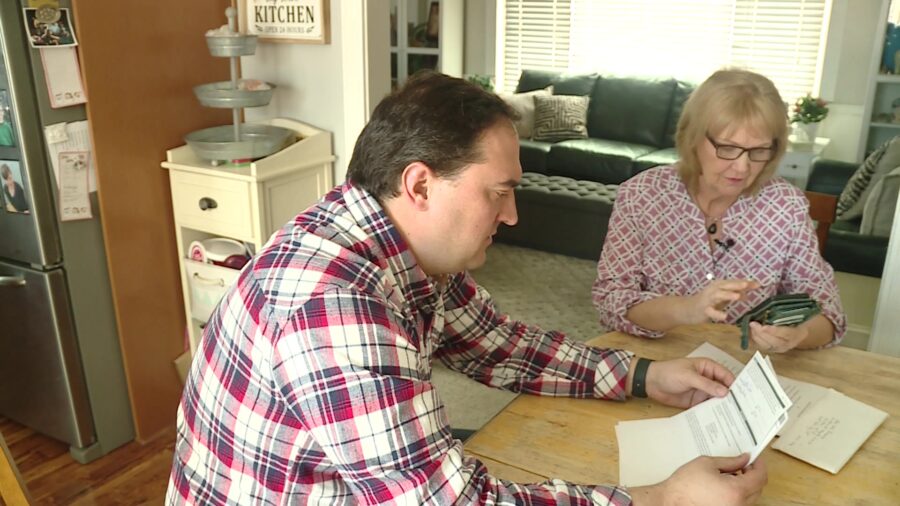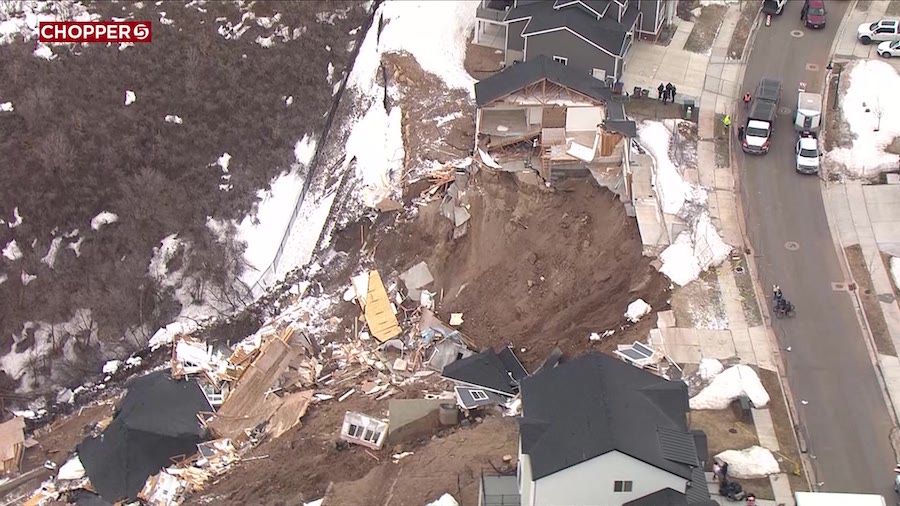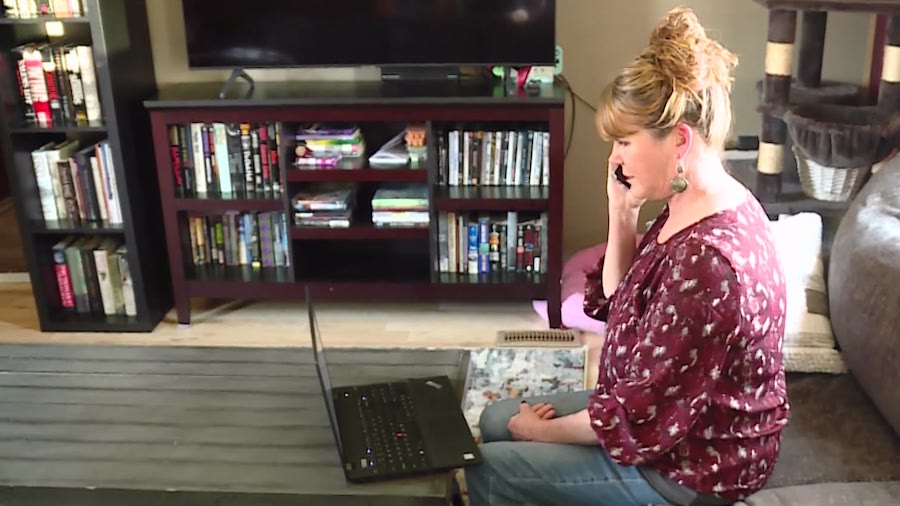KSL INVESTIGATES
Utah abortion laws unclear on reporting, verification process for sexual assault victims
Jul 6, 2022, 10:36 PM | Updated: Jul 7, 2022, 10:11 am
SALT LAKE CITY – Utah abortion laws allow exceptions for cases of rape – but only if victims have reported to police. While that requires law enforcement and physicians to work together to help victims of sexual assault who are seeking abortion care, the state has not established a uniform process to ensure that happens.
The courts have temporarily suspended Utah’s “trigger law” banning all elective abortions, but that measure and the law in effect now – which bans abortions after 18 weeks – both require victims of rape seeking abortion care to first report the sexual assault to law enforcement. And both measures require physicians to verify those reports with law enforcement.
However, the legislation fails to articulate what level of verification is needed to satisfy the statute, how law enforcement should respond to attempts by medical professionals to confirm a victim has reported an assault, and how law enforcement agencies should vet people identifying themselves as medical professionals seeking victim information.
‘Devastating effects’
“The vast majority of assaults go unreported,” Sonya Martinez-Ortiz, executive director of the Rape Recovery Center said.
Even so, sexual assault rates in Utah are above the national average and as the KSL Investigators have previously reported, sexual assaults are poorly tracked and under prosecuted.
“Reporting an assault can be as traumatizing as the assault itself,” Martinez-Ortiz said.
She said the law further victimizes people who’ve been impregnated through sexual violence and will have a devastating impact on survivors.
“Rape already fundamentally deprives survivors of their bodily autonomy, their freedom and choices, Forcing folks to report is further removing their bodily autonomy and further victimizing them.”
In a recent court filing in support of the Planned Parenthood Association of Utah’s lawsuit seeking to block the state’s trigger law, the Rape Recovery Center raised concerns over the legislation’s demands of survivors, physicians, and law enforcement, noting the lack of clarity in the law.
“In the RRC’s opinion, the Criminal Abortion Ban, even with the Reported Rape Exception, will have devastating effects on sexual assault survivors and will serve only to discourage survivors from obtaining abortions,” the document states.
Unanswered questions
“We want to encourage these mothers to seek help as quickly as they can,” said Sen. Daniel McCay, R-Riverton.
McCay is the chief sponsor of SB174, the “trigger law” the Utah Legislature passed in 2020, in preparation for the overturning of Roe v. Wade.
During an interview on June 8, McCay didn’t have clear answers to questions about the process by which physicians should seek to verify sexual assaults have been reported to law enforcement.
“That’s a great question. I know that they’re able to verify it now, and so I’m not sure how that works right now,” he said. “I’d have to spend a little time and get that answer back to you.”
Despite several follow-up requests, McCay never provided additional information about how the verification process should work or what level of verification a physician needs to move forward.
“Is there a database that they would be querying? – which means they could have access to other criminal records on their patients and vice versa, then law enforcement may have access to medical records that they should not have access to – Would it be a phone call? How do they verify that this individual is even a physician and maybe not an ex-boyfriend who’s trying to harass a woman?” asked legal expert Teneille Brown.
Brown is a professor at the University of Utah and specializes in health law but represented only herself when speaking with KSL. She said the legislation blurs the lines between medical professionals and law enforcement in troubling ways.
“I don’t think they’ve thought through any of those logistics at all,” Brown said.
No guidance
The KSL Investigators reached out to the Utah Department of Health and the Department of Public Safety with questions about the process.
A DPS spokesperson wrote in an email: “The Department of Public Safety is not aware of any guidance or procedures accompanying this change.”
In a separate email, a spokesperson for the Utah Department of Health and Human Services wrote that there are “no plans to issue statewide guidance for physicians or law enforcement agencies because we have no authority over criminal statutes.”
When KSL followed up with the Legislature, a spokesperson for the Senate Majority noted the requirement that a sexual assault be reported to law enforcement has long been part of Utah abortion law and said they’re “unaware of any issues.”
The requirement appears in legislation passed in Utah in 1991, again in 2009, and in the measures that have gone into effect since the U.S. Supreme Court overturned Roe v. Wade.
But Brown said that requirement has been largely irrelevant until now because, under Roe v. Wade, victims of sexual assault in Utah could access abortion care up until fetus viability without reporting to police.
“Very, very few rape victims wait until they are in their third trimester to seek an abortion,” Brown wrote in an email. “Indeed, the vast majority of abortions in the third trimester are for medical emergencies and fetal abnormalities. So, it’s not at all surprising that it wasn’t an issue — it was almost never a basis for an abortion in the third trimester.”
A spokesperson with the Planned Parenthood Association of Utah confirmed that under Roe v. Wade, there were only “a handful” of cases per year in which staff had to confirm a report of sexual assault with law enforcement.
“Our staff works closely with the police to confirm the rape has been reported,” the spokesperson wrote in an email. They did not answer specific questions about the confirmation process.
Now, under new abortion restrictions in Utah, whether victims report and whether physicians can confirm those reports with law enforcement will matter significantly more.
“If anybody feels like that’s unbaked or you know, or not fully thought out, I think they’re underestimating the ability of law enforcement and our medical providers to help us figure that out,” McCay said.
There are several dozen police departments across the state of Utah with varying resources, policies, and procedures.
Brown said the reporting and verification process that Utah’s abortion bans require should be clearly defined and uniformly carried out among physicians and law enforcement agencies statewide.
If you have experienced sexual violence, you can access help and resources by calling Utah’s 24-hour Sexual Violence Helpline at 1-888-421-1100. You can also call the Rape Recovery Center Crisis Line at 801-467-7273 or the National Sexual Assault Hotline at 1-800-656-4673 for free, confidential counseling.













